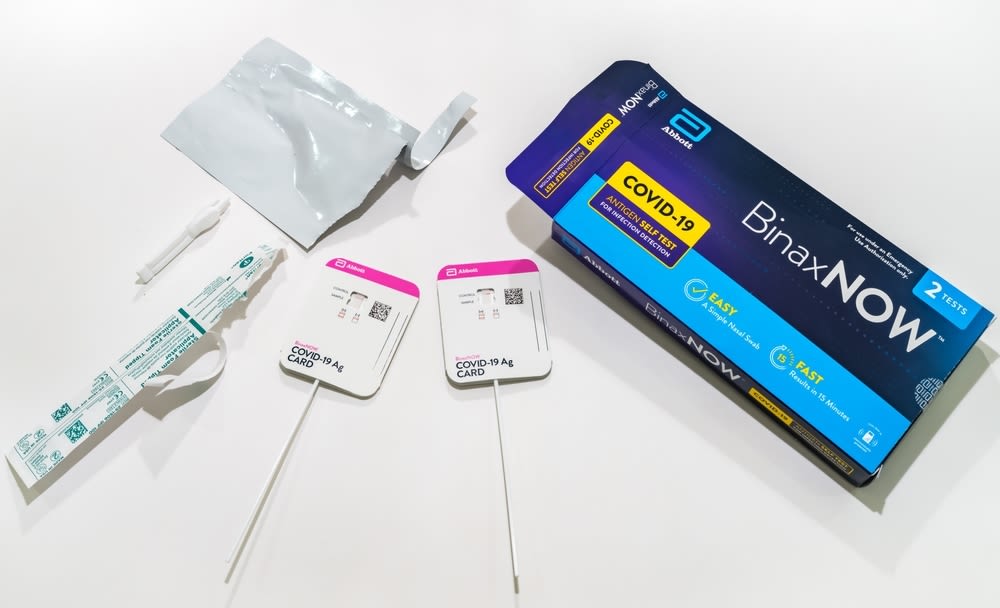Want to Find At-Home COVID Tests with Just One Click?

And now for something completely different: A feel-good story about COVID-19.
Such tales are in short supply these grim days—so meet Scott Krager, the Portland software developer behind 8tests.com, a constantly refreshing website that scans through the major retailers that sell at-home COVID tests to instantly tell you which ones are in stock and available for order.
He started working on it on Monday. After about 20 hours of programming, the site launched on Wednesday, and already has had over 10,000 hits, Krager says.
The impetus for the site was two-fold: One, Krager didn’t care for having 20 different tabs open on his computer at once, constantly toggling back and forth and hitting refresh in hopes of being in the right place, right time when Amazon, Walgreens, CVS, Wal-Mart, Rite-Aid and other major retailers had restocked their online rapid testing supply. (If you click through and buy tests from some of the retailers, Krager earns a small commission, which he says will go to keep the site's back-end operational.)
The other nudge came from President Joe Biden, who announced earlier this week that starting on Saturday, health insurance companies will have to reimburse you for eight free at-home COVID-19 tests per month—for every person in your household. With packs of two retailing for around $20-$25 right now, that can be a hundred dollars saved per month for a family of four.
The site is just for tests that are shipped out for delivery; it doesn’t tell you whether the testing kits are on shelves at the Walgreens near you for immediate use, nor does it find appointments for PCR testing, another COVID-era need that’s in short supply. But it does tell you when the testing kits will be delivered, allowing you to plan accordingly.
“I wanted one giant big button that was easy to use and easy to refresh,” says Krager, who founded a search engine optimization start-up in 2012, sold it in 2017, and then spent six months working as an emergency medical technician in Seattle. “You should be able to just walk into any store and walk out with a bunch of tests, but this is a good step, giving people at least a reimbursement, and hopefully, access to the free tests very easily.”
Krager, whose brother is the deputy public health officer for Clark County, Wash., had an early inkling that Omicron might scramble the pandemic calculations yet again, so he stocked up on tests in the late fall, when they were still relatively plentiful. He’s found, he says, that being able to take a quick at home test brings at least some peace of mind in uncertain times: “[Tests] are very useful for social interactions, where you just want to feel a little more comfortable and know that you’re not just asymptomatic. So hopefully, any more tests into people's hands will reduce anxiety for people, and just help reduce the spread overall, because, if you are asymptomatic, and do have a positive test, then you can stay home and isolate yourself.
Tests are still in short supply, despite Oregon’s announcement two weeks ago that it would order six million kits to distribute to health care systems, nonprofits, and K-12 schools, among other places. But delivery of those kits has lagged due to supply chain issues, a spokeswoman for the Oregon Health Authority told The Oregonian this week, and the full order is not expected to be complete until February. The Omicron surge is projected to peak in the state by late January.




